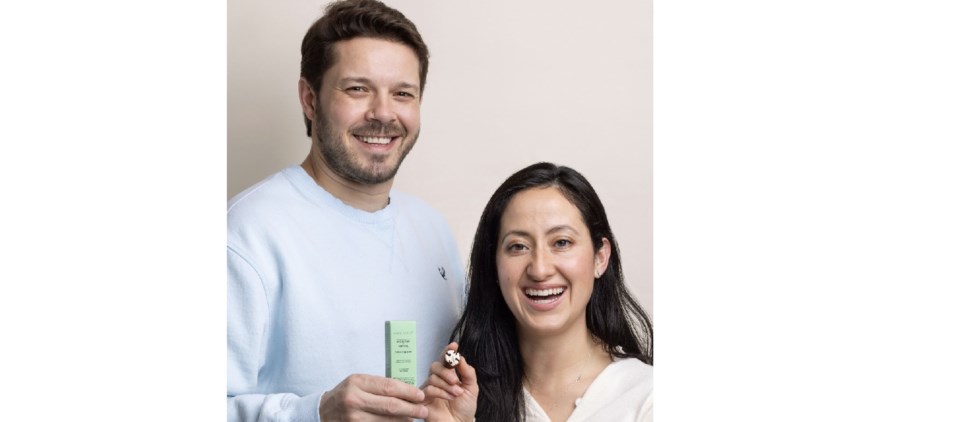A local Indigenous business is looking to get a foothold in the U.S. beauty market despite hovering trade war fears.
Nuez Acres, a beauty product brand based in Langley, is Canada’s only Indigenous pecan oil producer, said co-founder and Métis entrepreneur Anthony Wingham.
His company uses the oil from pecans for their beard, face and body care products, which are also waterless.
Nuez Acres sources their pecans from co-founder Nancy Wingham’s family farm in the Mexican state of Chihuahua, and are then flown directly into Canada.
One of the company’s missions is to reduce water consumption, which is significant in the beauty industry. This also became a focus because of the water access challenges Anthony and Nancy have each experienced in the past.
“When we started to create this business, it was really to make sure that we don’t create something that’s wasteful,” said Anthony.
Nuez Acres came to life in 2018, when the price of pecans collapsed from the trade war between the U.S. and China, leading both founders to explore its potential uses and beneficial properties.
“Our first shipment arrived in March 2020: 300 kilograms.… That’s when we started the product,” said Nancy. “We started with three SKUs (stock keeping units)—a pure pecan oil and then two skin serums.”
When the pandemic hit, the company pivoted to food items so that they could attend local farmers markets and sell their goods. Beauty products have been their focus ever since.
Navigating branding challenges and tariffs
Nuez Acres recently signed a deal with United Natural Foods Inc. (UNFI), one of the largest distributors of natural foods and products in North America. The company is looking to launch their products in U.S. stores in March.
This opportunity, while significant, initial raised a brand issue, given the differences between the U.S. and Canadian markets. Nuez Acres’ brand, a public relations mentor pointed out to the pair, could be polarizing across the border.
“She mentioned to us, don’t say that the brand is Indigenous and that your product comes from Mexico,” said Nancy. “The Indigenous side in the U.S. is still not that big as opposed to Canada.”
These discussions took place during the latest U.S. election, at a time where divisions could have negatively impacted the product, she added.
The threat of a trade war between the U.S. and Canada has also spawned created some hurdles, as the company seeks to stockpile products in the U.S. before their possible start next month.
The cost to do this has risen, as many Canadian firms look to move product south ahead of potential 25-per-cent tariffs on Canadian exports to the U.S. Nuez Acre’s first shipment of seven pallets cost around $900 to move. Shipping one pallet now is $700, explained Nancy.
Despite these challenges, both founders stressed that younger demographics are becoming more aware of how products can impact the environment, are seeking out sustainable products and are learning how to identify unsustainable ingredients on product labels.
“[There’s] even some platforms where you can scan a barcode and it tells you the percentage of ingredients that are clean, or gives you a score for the product,” said Nancy.
Consumers are also looking at the materials used for a product’s packaging, which ultimately needs to be sustainable, too, in order for some consumers to buy the product, she said.
Since its inception, Nuez Acres has seen significant growth,with products now on the shelves of 250 Walmart and independent stores in Canada.
The company was also recognized at BIV’s 2024 BC Export Awards as the winner in the Indigenous-led Exporter category.


